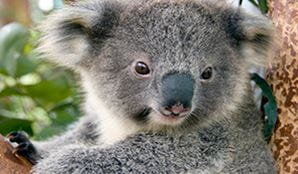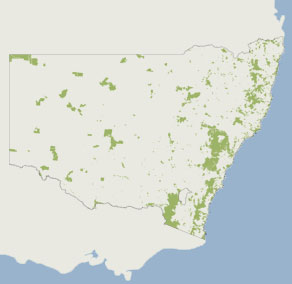Cockle Bay bush regeneration
Cockle Bay Nature Reserve
Overview
Engage with the local community by taking part in bushland restoration in Cockle Bay Nature Reserve. As a volunteer, you’ll be helping to improve the habitat for native flora and fauna on the NSW Central Coast, near Ettalong.
- Work
- Bush regeneration, weed and pest management
- When
- One Sunday morning a month
- Accessibility
- No wheelchair access
- Grade
- Medium
During this activity, you’ll do some gardening with a team of volunteers, to stop the weeds from overtaking this diverse natural environment. Together we'll be helping to protect important areas of coastal wetlands and the habitat of the Powerful Owl amongst other native animal species.
The volunteer group have already contributed greatly to the health of Cockle Bay Nature Reserve. As a result, there has been minimal weed invasion. This activity will give you the opportunity to meet with like-minded people and engage with your local community to be a part of this rewarding work.
Some gardening knowledge is useful, however you'll receive training from the group convenor or national park staff.
Remember to bring:
- Drinking water
- Snacks and lunch
- Closed shoes
- Long sleeve clothing
- Hat
- Sunscreen
- Raincoat
- Gardening gloves
Tools and hardhat are supplied.
Find out more about volunteering with us
Saving Our Species program
Australia is home to more than 500,000 animal and plant species, many of which are found nowhere else in the world. Saving our Species is a statewide conservation program that addresses the growing number of Australian animals and Australian native plants facing extinction.

Park info
- in Cockle Bay Nature Reserve in the Sydney and surrounds region
What's nearby:
Things to do (81)
- Aboriginal culture (14)
- Beach (1)
- Birdwatching and wildlife encounters (17)
- Cafes and kiosks (1)
- Canoeing/paddling (4)
- Cultural heritage (2)
- Cycling (5)
- Educational activities (1)
- Environmental appreciation/study (2)
- Fishing (5)
- Geotourism (1)
- Historic heritage (9)
- Other experiences (3)
- Photography (4)
- Picnics and barbecues (10)
- Sailing, boating and cruises (7)
- Sightseeing (35)
- Snorkelling and scuba (1)
- Swimming (4)
- Visitor centres (2)
- Walking (31)
- Waterfalls (3)
- Wildflowers (seasonal) (5)


